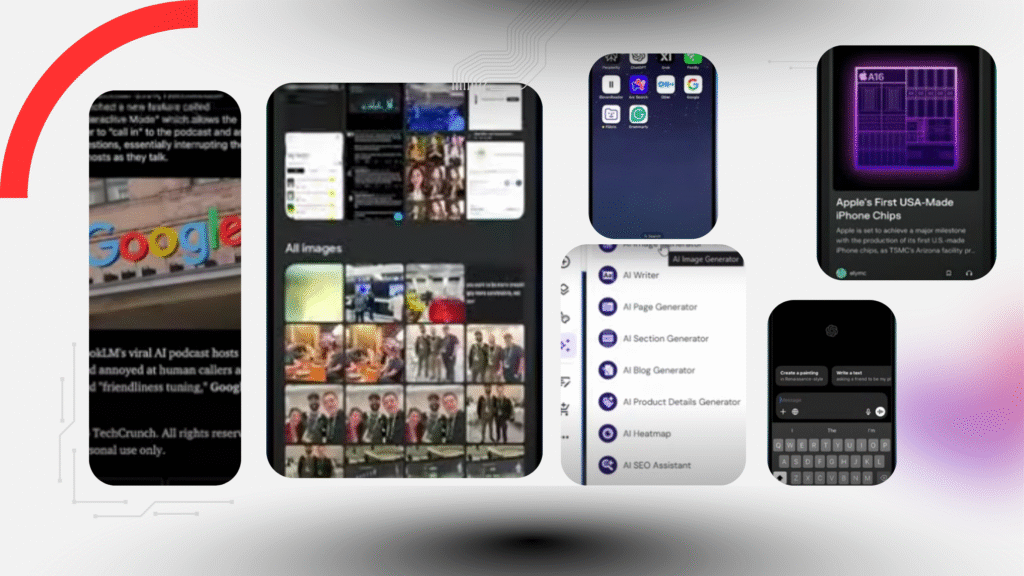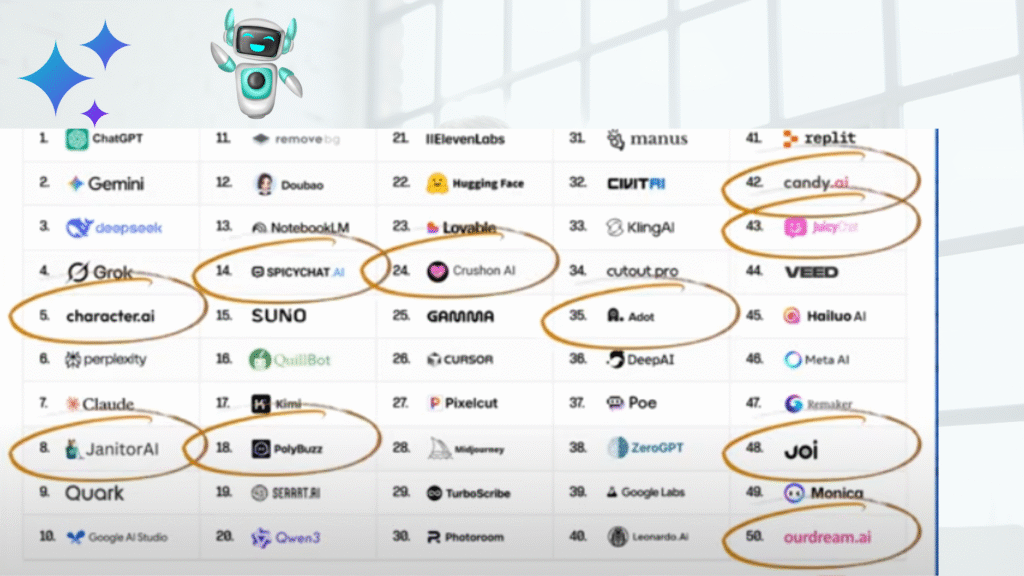Explore how artificial intelligence is reshaping the mobile landscape through powerful apps that simplify daily life, enhance creativity, and redefine productivity across every category — from chatbots and image generators to education, health, and finance tools.
Top AI Apps Transforming the Mobile Experience
The global mobile app industry has evolved into a multi-billion-dollar ecosystem driven by artificial intelligence. As users increasingly seek faster, smarter, and more personalized experiences, developers are integrating AI into every corner of the app landscape. From chatbots that write code to tools that design images, AI is redefining convenience, creativity, and productivity across mobile devices.

The Rise of AI-Powered Mobile Applications
Artificial intelligence has become a defining element of mobile innovation. Today, almost every user need—whether photo editing, language learning, financial planning, or mental wellness—has an AI solution. These applications are powered by machine learning, natural language processing, and generative technologies that continuously adapt to user behavior.
Leading Categories of AI Apps
AI Chatbots and Assistants
ChatGPT — Developed by OpenAI, ChatGPT remains one of the most advanced conversational AI models, capable of generating content, solving problems, and assisting users with research or communication tasks.
Copilot — Microsoft’s Copilot, integrated into its Edge browser and mobile platforms, handles a wide range of activities from creating travel itineraries to generating code or exercise plans.
Gemini — Google’s Gemini offers seamless integration with Android and Google services, enabling real-time information search, brainstorming, and writing support in multiple languages.
DeepSeek — A Chinese open-source chatbot known for its reasoning capabilities and cost efficiency, DeepSeek has rapidly gained popularity for providing reliable, affordable AI interactions.
Claude — Created by Anthropic, Claude supports in-depth discussions, coding, and image analysis while maintaining strong safety and data compliance standards.
Grok — Built by Elon Musk’s xAI, Grok uses real-time data to deliver unfiltered, information-rich answers through X and web applications.
Doubao — Developed by ByteDance, Doubao has become one of China’s most widely used AI chatbots, offering content generation, research tools, and coding assistance.

AI Search and Browsing Tools
Perplexity AI provides verified, well-sourced answers and has introduced a specialized browser called Comet for automated search and task execution.
Google Search Generative Experience enhances conventional search by blending AI-generated summaries with traditional results.
Bing with Copilot Search allows users to query images, receive summaries, and generate visuals directly within the search experience.
You.com leverages its proprietary large language model to deliver multiple result formats, including text, visuals, and video summaries.
Fellou introduces agentic browsing, running multiple tabs and summarizing or generating content across tasks simultaneously.
AI Image and Creative Tools
Dall-E 3 by OpenAI transforms text prompts into detailed visuals, now fully integrated into ChatGPT.
Adobe Firefly empowers creators with image generation and editing tools inside Photoshop and Premiere Pro.
FaceApp and Facetune remain favorites for AI-based selfie and video enhancements, while Lensa and StarryAI expand possibilities in digital art, avatars, and NFT creation.
AI in Education
Khanmigo from Khan Academy acts as an AI tutor and teaching assistant, supporting students and educators through interactive learning.
Duolingo customizes language lessons through adaptive AI and gamified experiences.
ELSA Speak offers pronunciation correction and personalized English learning paths using voice recognition.
Socratic by Google helps students with homework through image recognition and visual explanations.
Health and Wellness AI Apps
Calm uses machine learning to recommend personalized meditation and relaxation content.
FitnessAI designs tailored workout routines using data-driven optimization.
Woebot Health and Youper deliver emotional support through AI-guided conversations based on psychological research.
AI Finance and Productivity
Ally Financial applies AI for customer service and fraud prevention.
Cleo connects with user accounts to provide budgeting advice and spending insights in a conversational tone.
Fyle simplifies corporate expense reporting through automated data extraction and integration with financial platforms.
AI Audio and Transcription Tools
Google Recorder provides instant transcription for Pixel users.
Otter.ai and Trint offer detailed meeting transcriptions with speaker recognition and summaries.
Read AI enhances meeting productivity by automatically identifying topics, questions, and engagement peaks.
AI Navigation and Daily Use
Google Maps and Waze both apply machine learning to analyze real-time traffic and predict the fastest routes.
Grammarly, Jasper, Writer, and Quarkle lead the writing assistant category, helping individuals and organizations craft clear, polished, and brand-consistent content.
The Broader Impact of AI Apps
The integration of artificial intelligence into mobile applications has made technology more human-centered than ever. Whether enhancing creativity, improving communication, or simplifying everyday routines, AI apps continue to push the boundaries of digital convenience. As 2025 unfolds, the competition among AI-driven mobile platforms is set to intensify, giving users access to tools that are smarter, faster, and more personalized than ever before.

